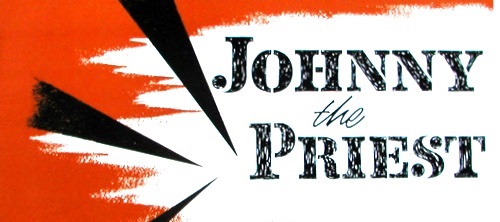One of the most fascinating of 'real-life' British musicals, JOHNNY THE PRIEST told the story of a young vicar's attempt to improve the lives of teenagers living in a run-down London dockland. Acknowledged as one of the most innovative and inventive scores of the period, this terrific score with its superb big band arrangements by Gordon Langford emerges refreshened in Alan Bunting's immaculate sound restoration. Antony Hopkins' remarkable score catapulted the British musical into new territory, offering not only the best songs ever about ping-pong and wallpaper, but moments of great beauty.
Songs Blunt Play's Edge
In the original version, the Vicar's dilemma was dramatic, the action was strong and clear. Set to music, it retains its sincerity but loses its edge. In a scene between the Vicar and an understanding police sergeant, in which Johnny's future is discussed and decided, it does not help matters that the clergyman suddenly begins to present his case in song, particularly when the policeman responds in ordinary prose dialogue.
The one real purpose that the music does serve is to give Johnny's companions, the boys and girls of the dockland streets, a chance to create some atmosphere. It is, however, the same atmosphere that has been created so often lately, the atmosphere of lawlessness in dingy surroundings. There is no novelty in it.
For my own part, I do not believe that so serious a play as this is good material for a musical.
Last night's piece was very well performed. Jeremy Brett, in particular, deserves credit for his presentation of Highfield. The danger in acting a man who will not tell a lie to save a friend is manifest; one touch of priggishness and the sympathy of the audience is lost. Mr Brett gives him the honourable simplicity which convinces us that for him only one course of action is possible. Also, and this is a surprise to me at least, he sings acceptably.
Stephanie Voss as his wife sings much more than acceptably and also gives colour to a character that needs it. Bunny May is credible as Johnny, and among a multitude of small part characters Hope Jackman and Phillada Sewell stand out.
- W.A. Darlington
